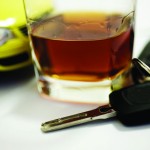

A Seattle man who lost his parents and whose wife and infant son were seriously injured last March by a drunken driver asked a Senate panel on Monday to pass a measure that would make it a felony charge to drive under the influence when the driver has three prior offenses within 10 years.
Under current law, a DUI is a felony only if there are four or more prior offenses within 10 years. Reducing that threshold was an idea that lawmakers considered last year but ultimately decided would be too expensive. The Senate Law & Justice Committee could vote on Senate Bill 6090 in the coming days.
Dan Schulte told lawmakers that the crash that has left his wife and son with brain damage and other lifelong injuries “was a preventable crime.””It’s impossible to ensure the community’s safety when these repeat offenders are out on the road with easy access to alcohol,” he said. `”We give these repeat offenders far too many chances.”
 Mark Mullan, who had five previous DUI arrests, pleaded guilty to vehicular homicide and vehicular assault for the crash in which his pickup truck hit four members of the family as they crossed a street. Mullan had a blood-alcohol content about three times the legal limit when he hit the family as they crossed a street in the Wedgwood neighborhood in broad daylight.
Mark Mullan, who had five previous DUI arrests, pleaded guilty to vehicular homicide and vehicular assault for the crash in which his pickup truck hit four members of the family as they crossed a street. Mullan had a blood-alcohol content about three times the legal limit when he hit the family as they crossed a street in the Wedgwood neighborhood in broad daylight.
The crash killed Schulte’s parents, Dennis and Judith Schulte, retired teachers from Kokomo, Ind., who had recently moved to Seattle to be closer to their new grandson, Elias. In November, Mullan was sentenced to 18 years in prison.
A fiscal note has not yet been put together for what the measure would cost, but officials last year, when considering lowering the felony threshold to the third or fourth conviction, had said that lowering it to the third conviction would cost about $200 million for construction of a new prison to confine the number of drunken drivers.
Pierce County Prosecutor Mark Lindquist told the committee that the measure would “send a strong message that we take drunk driving seriously, especially repeat drunk drivers.”
Sen. Adam Kline, a Democrat from Seattle who is a member of the committee, said that the lawmakers on the committee support the policy, but asked Lindquist how the state should pay for it.
Lindquist acknowledged that there is an increased cost to put more drunk drivers in prison, but stressed “there’s also a cost to not putting them in prison.”
“You can talk to anyone who’s lost a friend or family member to a drunk driver and they’ll tell you about the cost,” he said.
The bill is a recommendation from a work group created by a measure signed into law by Gov. Jay Inslee last year which toughened impaired driving laws in Washington after a spate of fatal crashes.
Under last year’s law, a driver suspected of a second impaired driving offense faces mandatory arrest and will have an interlock device installed on their vehicle within five days of being charged. It also set up a pilot program, to be conducted in Spokane, Chelan and Thurston Counties and the cities of Kent and Centralia, to conduct daily alcohol monitoring of anyone convicted twice under the DUI law. Also, additional funds were put toward ensuring that local jurisdictions prosecute and punish more offenders more quickly.
Schulte said that that while the Legislature has to consider the costs of lowering the threshold for felony DUIs, “it’s hard to quantify the cost that my family has paid.”
“Here we’re talking about saving lives first, not just saving dollars,” he said. “Let’s ask, can we do both for the community?”
Inslee spokeswoman Jaime Smith said that the governor doesn’t currently plan to weigh in on the bill.
“We are watching this, but the fiscal constraints remain a challenge,” she said.